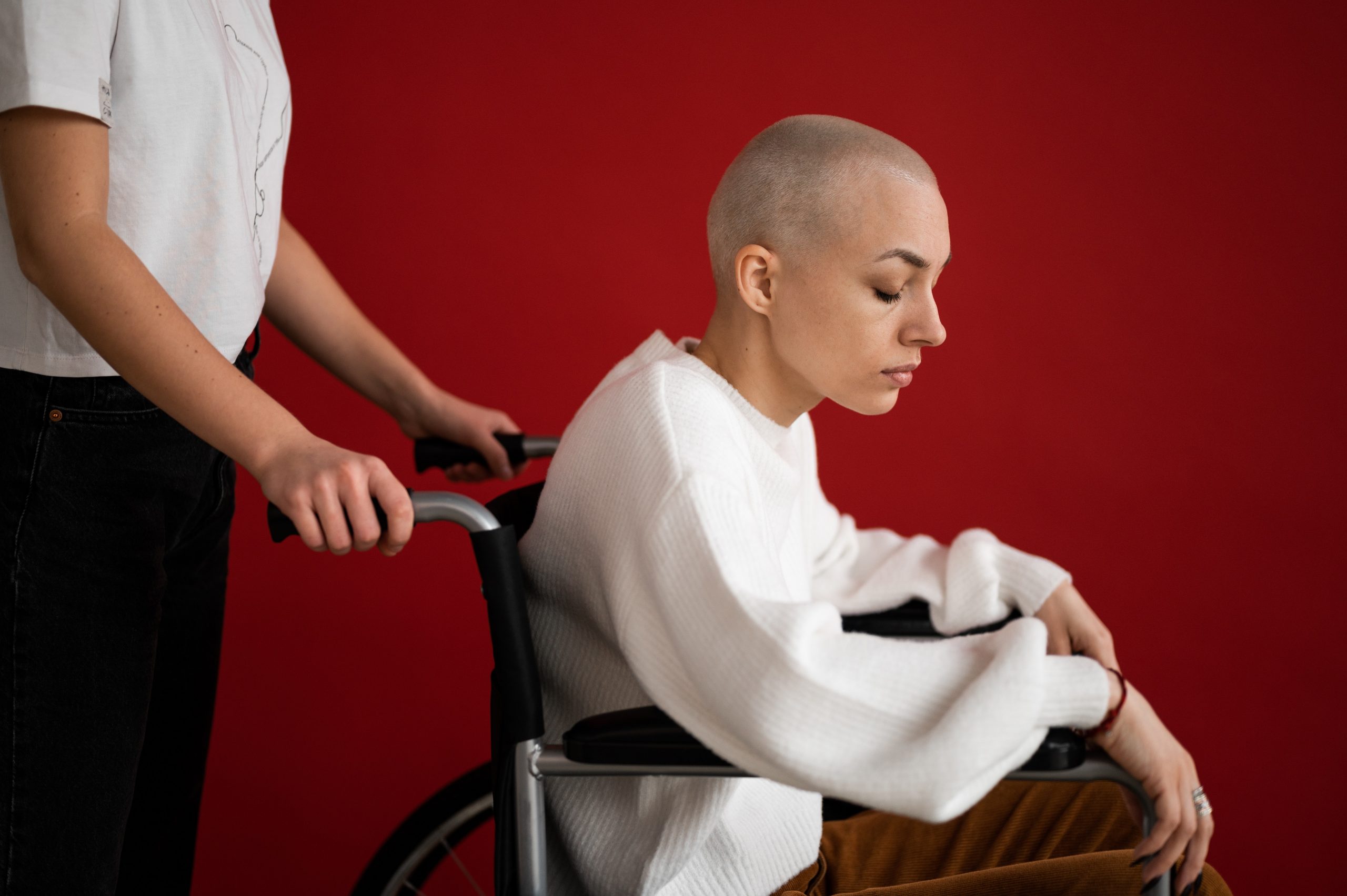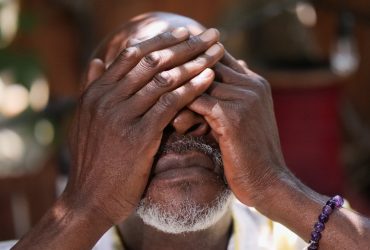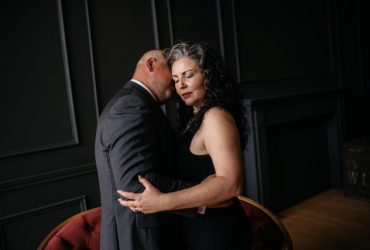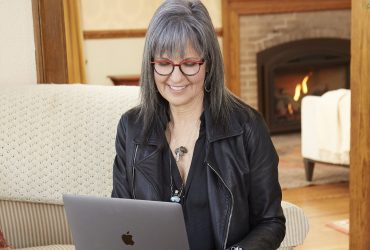Death Doulas: Why Every Midlifer Should Have Them In Their Contact List
10.07.2021

Death is a perfect storm; the painful meeting point of so many toxic and impactful emotions. There are multiple angles from which people approach the question of death. Death doulas helps lead you along this painful last lap of life.
“To the well-organized mind, death is but the next great adventure.” – J. K. Rowling.
During midlife, people we love will start to pass on. And a person with a terminal illness may well have to stare down the barrel of their own demise, coming to terms with it as time draws on.
The horrible paradox around death is that it’s not only a time of swirling and conflicting feelings but also a period during which financial, legal, medical, and practical issues will swirl around you, begging to be resolved. You enter a fog of emotions and a cloud of practical considerations at the same time. This is when death doulas are most beneficial to engage.
If you don’t take steps to manage these logistical problems in a clear-headed way, it’s a recipe for disaster.
Making emotionally driven decisions can lead to poorly executed plans. But being practical to the exclusion of empathy is not going to cut it at a time when your people are going to lose someone close to them. It’s necessary to find a balance.
When you’re in a crisis of emotional disarray, you may need a person to take charge who’s detached from the involved parties to help out. In short, you need a leader. And if there isn’t someone within your circle who’s willing and able to assume that leadership role, death doulas might be the next best thing.
A death doula is also known as an end-of-life midwife.
Death doulas provide emotional support during birth, too; there’s something poetic about their existence. They hold our mother’s hand while we enter the world and our own hand (as well as the hands of our loved ones) while we leave.
The more organized you can be during times of turmoil, the less damage that turmoil is likely to cause. Recovering from grief will be much more challenging, for example, if a bitter family dispute unfolds because the deceased individual’s will wasn’t correctly handled.
Building yourself up to a loved one’s funeral will be much easier if you aren’t burdened with the nitty-gritty of making detailed memorial arrangements. What are you going to include in the post-funeral buffet? Who’s going to arrange a florist for the service? You don’t want to have to think about this.
You just want to remember the good times with this person and mourn them in your own way. Minor details shouldn’t stand in the way of recovering from major emotional trauma. That’s the role death doulas play: providing a bridge between the emotional, medical, and practical corners of death.
In midlife, we’re just one or two degrees of separation from a person who’s dying from cancer, let alone other diseases. We have to build up a toolkit that can help us face up to these hard-hitting realities.
And Team Vippi believes that this toolkit should include a death doula.
We explain why it’s crucial to avoid scrabbling around for death doulas at the last minute and the reason you should add one you trust to your network ASAP.
Death Doulas 101
Alua Arthur, the founder of Going with Grace (an end-of-life organization), talks about the concepts behind death doulas. Even the comments on this video, though, suggest that many people are interested in the bedside care element of death doula services and not “doing the paperwork.” You have to make sure that your particular doula focuses on what you need.
Some refer to a death doula as a soul midwife, end-of-life coach, death midwife, or, somewhat coldly, a “transition guide,” which sounds more like someone leading a corporate takeover than a source of compassionate support during a difficult time.
Whatever the label, death doulas help folks “go gentle into that good night,” to quote Dylan Thomas.
Every culture has a different relationship with death that colors the process with a different meaning. In funerals throughout some Asian cultures, for example, professional mourners help communities express profound grief.
And even within different parts of Western society, cultures deal with death in varying ways.
A brass band may play a street parade in New Orleans as a funeral procession carries a beloved member of the Black community through the streets in a coffin (as famously depicted in Live and Let Die). A Jewish Shiva plays out differently than a secular cremation.
Using a death doula is a way to add a compassionate, personalized element to someone’s passing. Death doulas help soon-to-be-deceased folks confront and accept the end in a deeply personal way while connecting their families with the information and resources they need.
What is a death doula?
Death doulas are not medical professionals. Instead, they are trained to focus on the physical, emotional, practical, and spiritual needs of a dying individual and their family during end-of-life care, throughout the death process, and, in some cases, while mourning, too.
Think of them as a Mary Poppins for our last moments. (Mortuary Poppins, perhaps?)
A person may request a death doula if they’ve entered hospice or palliative care and know that their time is coming soon – or even before they enter hospice. For those who perhaps no longer have the mental faculties to request their own care, a family can hire a death doula to help someone they love die a “good” death.
What services do death doulas provide?
Death doulas are only as valuable as their network.
You’d thoroughly vet an au pair or nanny because you’d want to know that your children would be in the best hands possible and that all bases are covered. In the same way, it’s important to interview a death doula personally so that you develop an awareness of what they can and can’t provide.
Despite receiving standardized training (see below), every death doula offers different services. You’ll want to make sure that if a death doula isn’t able to provide a service themselves, they’re connected to someone who can.
Their services might include:
Coordination support
- Care planning, including possible organ donation.
- Liaising with health care providers, carers, and hospice workers on patient’s behalf.
- Organizing and assisting with legal paperwork (such as administering the power of attorney and estate planning).
- Referring a patient to practical, emotional, and spiritual community resources like religious leaders or local non-profits that provide counseling.
- Organizing informal care networks consisting of family, friends, and community members.
- Informing family and friends of updates and relaying the individual’s wishes (for example, sending out messages if they’d prefer privacy or coordinating the visits of loved ones).
- Assisting with vigil preparation or funeral planning.
Emotional/spiritual support
- Discussing the patient’s end-of-life plans, wishes, and desires.
- Conducting life-review sessions to find meaning while looking over their life.
- Speaking about values, desires, and spiritual beliefs.
- Legacy work, such as helping people record their life stories and write personal last messages to loved ones.
- Talking with children in the patient’s circle to help them acclimatize to the news.
- Carrying out music therapy (including singing to the patient, playing instruments for them, or listening to cherished songs from their life with them).
- Providing bereavement support, including providing support for the patient’s loved ones, talking to them, and providing resources to empower emotional healing.
Death literacy and essential information
- Helping the patient get the medical information they need.
- “Normalizing” end of life symptoms and signs and helping the patient understand what to expect.
- Providing information about end-of-life care for family and friends.
- Letting the family know how they can help during and after death, such as telling stories during a person’s final moments or helping to wash the body.
- Informing the family about funeral practicalities.
- Relaying any regional or statewide legal requirements around after-death care.
- Previewing the crematorium (if that’s what the patient wants).
Practical and personal support
- Regularly checking pain and symptoms, and getting medical assistance when necessary.
- Pain and symptom management through light massage or the use of essential oils.
- Housework, including meal prep, gardening, dog walking, groceries, and sheet-changing.
- Hygiene and washing support (even down to intimate care like butt-wiping).
- Oral hygiene, repositioning in bed, and applying cooling compresses.
After death care
- Body care, including washing and ceremonially preparing the body or instructing the family on how to do so.
- Assisting with after-death paperwork.
- Attending a funeral as a guest (where requested).
- Checking in with the family to provide bereavement support.
Is there a certification or central agency?
There are several death doula agencies.
Training takes around 6-9 months and is necessary for a doula to acquire certification. An end-of-life coach certainly needs to be more qualified than a life coach, who needs no accreditation at all.
Several organizations train and certify death doulas, include:
- The International End of Life Doula Association (INELDA)
- The International Doulagivers Institute
- The Lifespan Doulas Association (LDA)
INELDA and The International Doulagivers Institute focus squarely on training death doulas, whereas the LDA also trains birth and postpartum doulas.
None of these organizations, however, are government-certified.
How to find a death doula in your area
It’s always best to go through the agencies when finding a death doula – that way, you know that you’re making contact with a qualified, connected individual.
However, at present, only INELDA and LDA seem to have directory functions on their site aimed at connecting people in need with doula services. These might be your best ports of call for finding your nearest doula.
What to consider when consulting
We’re sure you’ve got enough to think about when you or a loved one are facing up to their mortality. But a little forethought can go a long way when it comes to picking a doula.
These considerations are essential to have in mind whether or not you choose to use a death doula’s services. They warrant thinking about regardless of whether you’re going to call in support.
Pre-death
This is where death doulas are most effective. They can help smooth out the process and highlight a clear path for all involved.
Death doulas can help compensate for human weakness at a time that demands limitless strength from you and your family. If you’re emotionally clouded, you’re also mentally cloudy. This can impair your decision-making during a near-constant string of critical decisions.
They’re not a cure-all but can help you and your family stabilize their emotions. A death doula can help guide the procedure and process around passing away.
Vital questions to ask when you first consult the doula include:
What would their approach be for supporting the emotions of the surviving family?
You need to know they’d be able to counsel and support a whole family’s worth of varied personalities.
Ask them to give you a detailed description of how they’d approach bereavement counseling or whether this isn’t within their wheelhouse. In that case, does the doula have a network that includes a grief counselor?
Will they engage with relationship management?
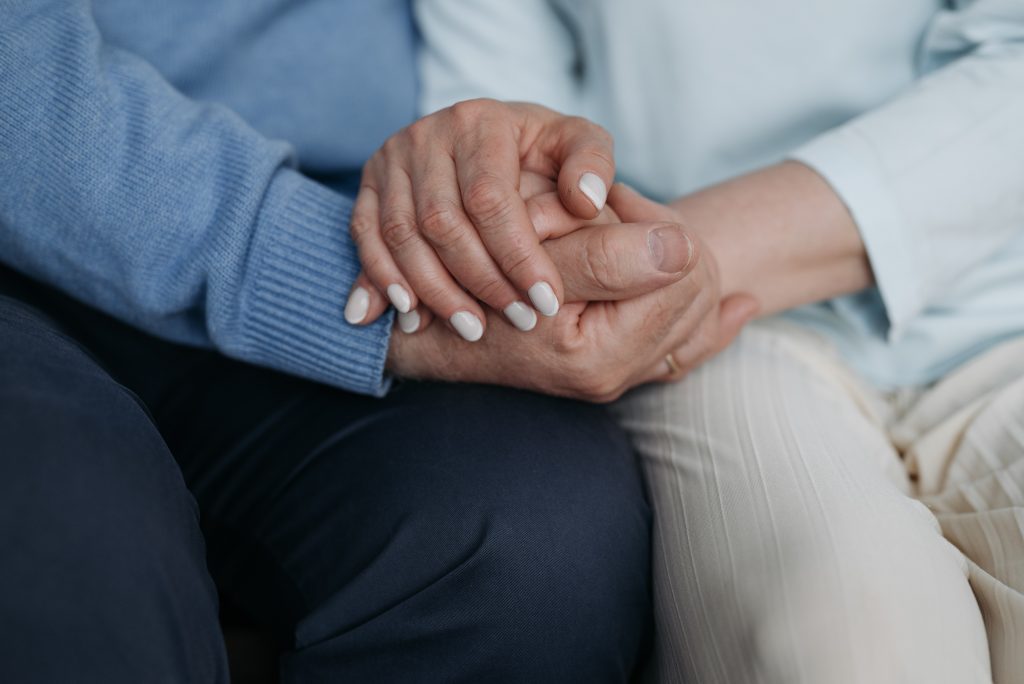
Are they happy to form an emotional bridge between the patient and their loved ones?
For example, a member of Team Vippi and his wife have a friend with cancer. The wife wants to help, but their friend wants to be left to cope in their own way. Would the death doula serve as a mediator here? What would their approach be to help reduce awkwardness in the relationship?
Will the doula engage with financial or practical planning?
You need to know whether the doula will help the patient contact their life insurance, finalize their will, and consolidate funeral arrangements.
Some doulas just look to provide emotional support and avoid paperwork altogether. If you’re about to drop $700 on 20 sessions, you need to know what kind of relief they’re going to provide.
The doula needs to recognize their limits and own the services they do and don’t provide – they won’t be a full-on legal or financial expert, and they shouldn’t claim to be a one-stop shop.
It’s important to know whether they can connect you with the right people for services they don’t provide. You should leave the conversation reassured that they’re not trying to sell you unfulfillable promises.
After a sudden death
The presence of a stranger in the family’s most intimate affairs might be uncomfortable and even a possible cause for argument after a sudden or unexpected death. It’s easy to misinterpret their role in a highly emotional situation.
But the occurrence of sudden deaths is precisely why you need a death doula in your contacts list, rather than having to place a massive amount of trust in a stranger at a moment’s notice.
Think of a death doula as an event manager for tragedies. Not only can some of them connect people with counseling, but they can act as a mediator between the family/inner circle and other requirements, providing a buffer.
For example, some people have an acute (and understandable) fear of funeral homes. At a time of grief, a death doula may be able to provide reassurance or even attend in the family’s place, relaying the options back to the mourning loved ones.
Alternatively, the deceased person’s inner circle may need time to process their loss and sort out details before resuming contact with other people. A death doula can act as a mouthpiece on behalf of the inner circle. Letting others know when the family is ready to accept visitors and communications.
They can act as a gatekeeper for emotional well-being during a time of great upheaval.
When do their services end?
A death doula is still offering a service – usually a package (20 hours for $700, according to one doula who spoke to Healthline, plus extra fees if an individual wants more time with the doula). And, as with any service, they will eventually need to move on to other clients.
Some doulas also offer individual sessions and services, such as bedside candlelit vigils, for higher fees. So their services end when the surviving family no longer feels a need to pay for them.
This leaves the family with a dilemma: what next? Do they turn to other professionals after that? Well, the doula should have done their part in connecting the family with further avenues of support – financial, legal, and psychological professionals. They can continue to help alleviate the family’s burden should they need it.
However, the previously mentioned report in SAGE journal suggests that a doula’s key role is in empowering both the person who’s dying and the community they’re leaving behind:
- They empower the patient in the run-up to death by acting as a mediator between them and their loved ones, facilitating a peaceful, dignified passing.
- They empower the patient’s loved ones by giving them the tools to make better end-of-life choices and care for the individual.
So, yes, the surviving community will need to think about the power of attorney, estate planning, and psychological counseling elements of grief.
That’s why it’s crucial when choosing a death doula to ask about their network. They are going to be key to the family’s self-empowerment moving forward.
Starting the process: Other considerations around death
When you’re talking to a doula pre-death, it can become apparent just how much there is to think about.
What are the patient’s plans for their ashes? Do they have mementos to pass on or letters to write to people? Do they want to pass on the passwords to any of their accounts, such as Facebook?
Use your conversation with a death doula to think about what else is needed so that a person’s passing doesn’t leave behind administrative, legal, or financial pitfalls.
Even talking to a doula about what they offer can help you reposition your mortality, or that of someone dear to you, in a strategic way that allows you and your loved ones to get through it.
The conversation can help you engage in a bit of disaster management of your own, even if you decide not to use the death doula’s services.
The roundup
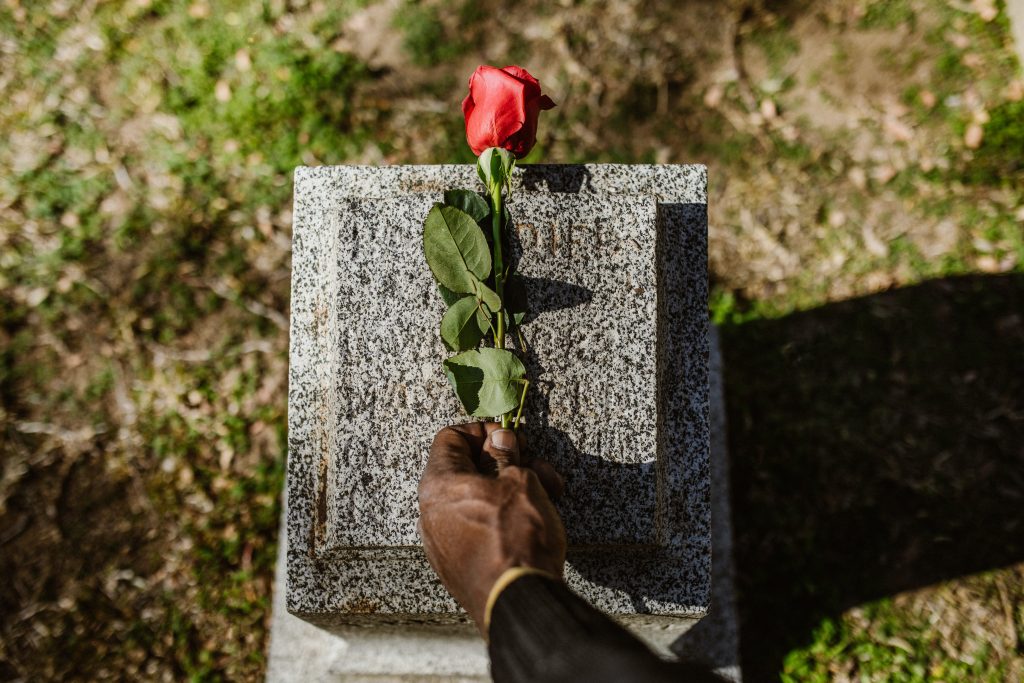
In the immortal words of the great philosopher Will Smith, “if you stay ready, you ain’t gotta get ready.” And when you or someone you love is at death’s door, “getting ready” is simply not a step you want to have to take.
The delegation of a death doula allows people to dedicate time to grieving and healing because practicalities are taken care of.
Give your people the breathing space they need. Make sure you’ve already singled out a death doula you trust, and add their number to your contacts list. Consider it an emotional insurance policy that will cover you in more trying times.
Article resources
FlorCruz, M. (2016). The hysterical world of professional funeral mourners. https://asiasociety.org/blog/asia/hysterical-world-professional-funeral-mourners
Healthline Editorial Team. (2018). How ‘death doulas’ can help people at the end of their life. https://www.healthline.com/health-news/how-death-doulas-can-help-people-at-the-end-of-their-life
King, D. (n.d.). Death doulas provide support, comfort and a new option for the dying and their families. https://eu.usatoday.com/story/news/health/2019/12/03/death-doulas-what-they-do-and-why-people-get-them/2596285001/
Krawczyk, M. (2020). Describing the end-of-life doula role and practices of care: perspectives from four countries. https://journals.sagepub.com/doi/full/10.1177/2632352420973226
Muuthara, G. (2019). Learning to serve the dying. https://www.aarp.org/caregiving/home-care/info-2018/end-of-life-doulas.html

